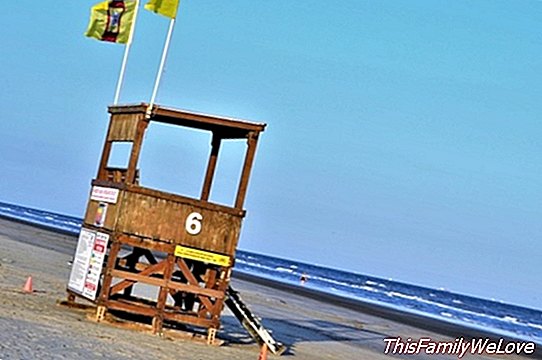The true work of a lifeguard

They lend a great help, they are easily recognized and little is known of their true function. From their chairs, lifeguards they watch that everything goes correctly and act in emergency situations to prevent these problems from getting worse. But how far do their responsibilities reach, to what extent can they be required?
In the case of families, it is important to know what the functions of the life guard to avoid giving him all the responsibilities of caring for the little ones. Coordinating with these professionals will help make the summer sessions in the pool or beaches as calm as possible and avoid major problems during these days.
Obligations of the lifeguard
What are the responsibilities of life guard? What should you do and where is your limit framed? These people are considered rescue technicians and this is their main obligation, which they can not neglect during bath time. Its main mission is not to leave the guard post under any pretext, except in case of attending an accident or in a relay.
In short, you must monitor, control and attend to any swimmer who needs your help. But their functions do not include, therefore, monitoring children while parents bathe. From Das Seguros explain that the technician in rescue he may be responsible for the commission of a crime even if he does not help a helpless person, or if he does not ask for help when he himself can not help.
Similarly, in the case of being negligent in his performance, and if the bather is affected by an injury or even by death, he would also be charged with a crime and could disable it. On the other hand, in the event that outside the facility the lifeguard must monitor a situation of risk to health or property, such as fights or robberies, you can not leave your position to intervene, and must notify another person in charge of the monitoring and control of those areas.
The work of the family
Although the lifeguard must attend to bathers and avoid startles and major problems, parents also have the mission of caring for their children so that there is no accident in the water. From the Spanish Association of Pediatrics the following tips are provided so that these situations do not exist:
- In a private pool, the use of security fencing is recommended, which has been shown to reduce drowning deaths by up to 95%. However, no system can replace the supervision of the parents or caregivers of the child.
- Do not neglect children at any time. Parents should always keep an eye on their children and in this way avoid accidents such as falls or small ones moving towards the deeper areas of the pool or beach.
- Take into account the age and characteristics of children before allowing them to participate in different water activities and always carry the recommended safety elements.
- Respect the signage. If the beach flags indicate that the bathroom is not recommended, parents should ensure that their children do not approach the shore. Any other signal that advises to stay away from the water will also have to be respected in order to avoid accidents.
- Avoid bathing in areas that are not monitored, such as the banks of a river or ditches that are not designated areas for this purpose.
Damián Montero




